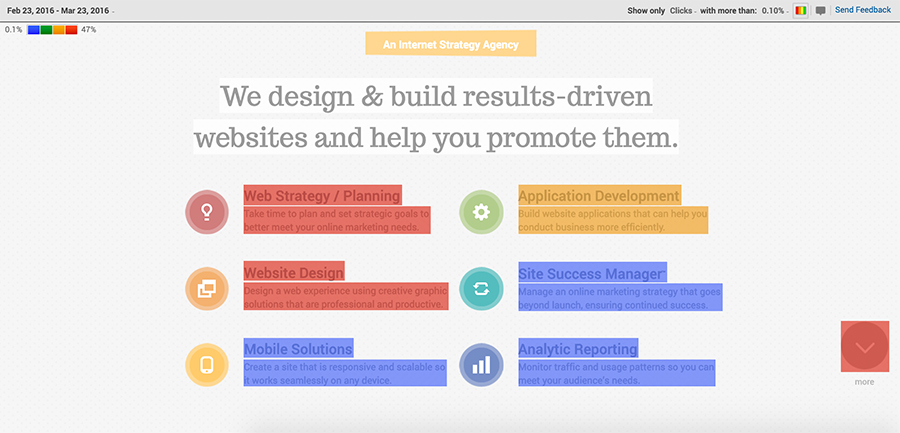
Do you have analytics set up on your website? If not, you should! Services like Google Analytics provide useful information about your audience and how they are interacting with your content. You can then use this data to improve your website and determine what’s working best for your business.
While getting Google Analytics certified, I discovered that there are a few key areas that provide quick insight into how you might need to update your marketing strategy: referrals, landing pages, and conversions. The following tips will help you interpret the data from those areas and use it to better focus your marketing efforts.
While getting Google Analytics certified, I discovered that there are a few key areas that provide quick insight into how you might need to update your marketing strategy: referrals, landing pages, and conversions. The following tips will help you interpret the data from those areas and use it to better focus your marketing efforts.
Referral traffic
Referrals show what website sources are generating traffic by linking to your website. An example of a referral might be a social media site like Facebook or an online directory. Your top referral sources can tell you things like what external sources you would benefit from increasing your presence on (based on longer time spent or completed goals reported from that referrer), or what efforts might not be generating the traffic or results you wanted.For example, if you see that you are pulling in a lot of traffic or conversions from Facebook, then you might implement a social media strategy that includes promoting more content on Facebook that links back to your website. Furthermore, if you are engaged in marketing efforts such as writing a guest post on a related industry blog or posting your website link on affiliate or partner websites, you can see if those efforts are worth your time by reviewing how much traffic they are referring. If you are seeing low referral numbers for things that cost you time and effort, it might be time to try something new.
Use this information to identify the best potential referral sources and work those into your marketing strategy. Learn more about how to increase referral traffic.

Look at metrics like sessions or bounce rate to determine which referrals are the most beneficial to your website.
Landing pages
In Google Analytics, a landing page is the page on which a user enters your website. The landing page report provides data like which pages have the highest amount of visitors, the bounce rate of those visits, and the percentage of new or returning users.You can use landing page data to answer questions like which pages are bringing in the most users and whether users are going to other pages on your website or leaving after looking at only one page. By answering these questions, you can get a better idea of what users are looking for on your website and if they are finding what they need. Determine what type of content is most effectively drawing visitors to your website and focus on better marketing that content. You can also use this data to identify additional search keywords that would be beneficial to target based on the most popular landing pages.

Google Analytics can give you detailed information about your pages, including a map of where users are clicking the most using the In-Page Analytics feature.
Conversions
Tracking conversions is one of the most useful aspects of website analytics when determining how to improve your marketing strategy. A conversion occurs when a user completes a desired goal on your website. Google Analytics provides data on how many users are completing your defined goals and gives a detailed look at the process flow.Conversion data can help you identify how successfully your website is meeting your marketing objectives and where in the conversion process users might be having issues. For example, if you are tracking downloads on a content offer and find that users are getting to your landing page but not downloading anything, you should revisit how you are marketing that offer to determine why users aren’t converting.
Conversions should be consistently monitored when you start a new campaign or adjust your marketing strategy in order to determine its impact on your goals.
Learn more about how to improve your website using analytics.
Does your marketing strategy need a refresh?
Contact us to get started 